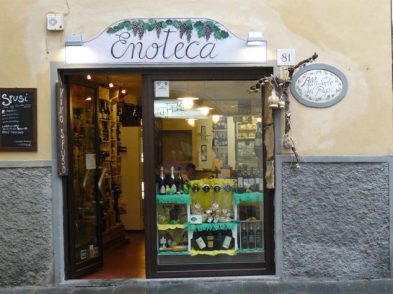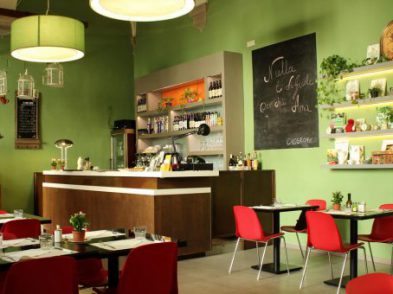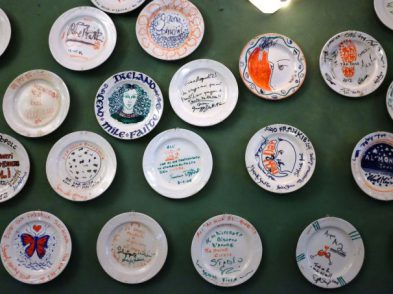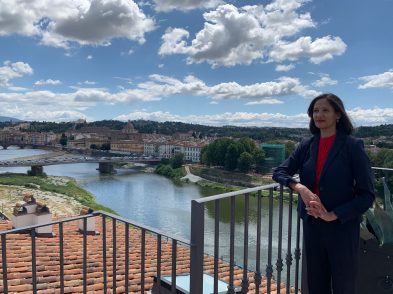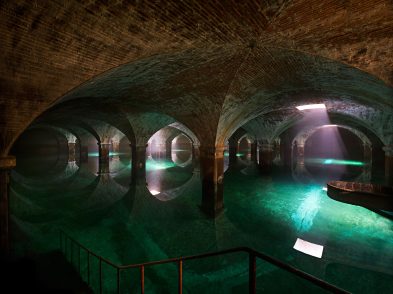Florence’s Jewish community continues to flourish, welcoming locals and tourists to participate in events and cultural rites that are embedded in the city’s fabric. Here is The Florentine’s guide to Jewish Florence, from the remains of the ghetto to the synagogue, kosher food and hidden cemeteries.
The Community
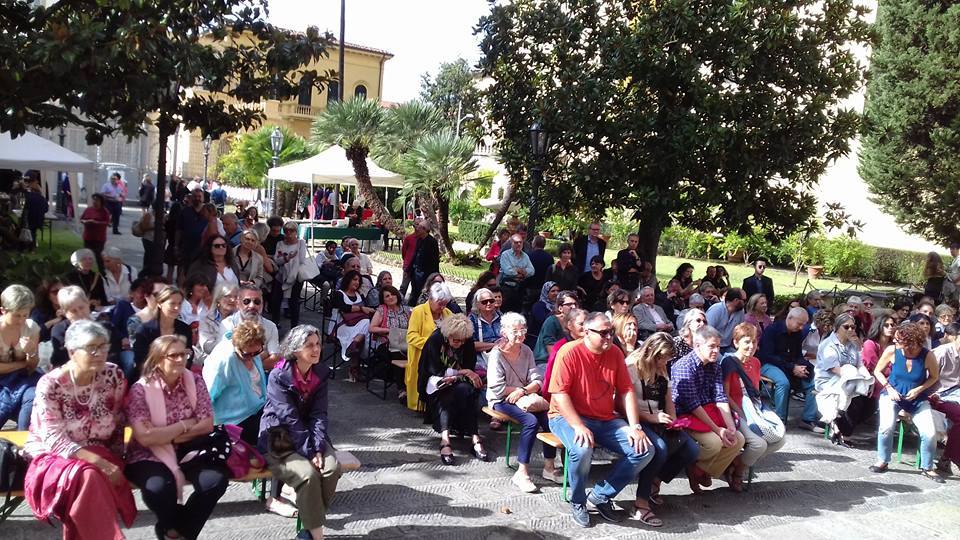
Balagan Café, a cultural events series in Florence
The Jewish community in Florence dates back to 1437 when Cosimo di Giovanni de’ Medici encouraged Jews to move to Florence as money lenders. In 1570, the Medici, under papal pressure, issued a decree whereby all Jews were obliged to live in a ghetto near today’s piazza della Repubblica. In 1861, the right to citizenship was extended to Tuscany’s Jews and the Florence Synagogue was completed in 1882. In 1938, the Fascist regime enacted racial laws that expelled Jews from state employment. In September 1943, the German army occupied much of Italy; many Jews fled the country, while others sought shelter and were taken in by local families. Out of the 9,000 Italian Jews who were deported or killed, more than 500 of them were from Florence. After the war, the Jewish School was reopened and the Synagogue was restored.
Today, there are around 1,000 Jews living in Florence, many of whom were born in Italy or Spain, as well as those from Israel, the United States and northern Africa. Services take place in the Synagogue in the east of the city (see below), where bar and bat mitzvah celebrations, weddings and other festivities are celebrated by those from all over the world, as well as services observing religious holidays and cultural events. Balagan Café, as part of Florence’s Jewish community, organize events that often take place in the synagogue gardens. Providing food and drink, guides and talks, the events showcase is an opportunity for the wider Jewish community to meet and celebrate their vibrant culture in Florence.
The Synagogue
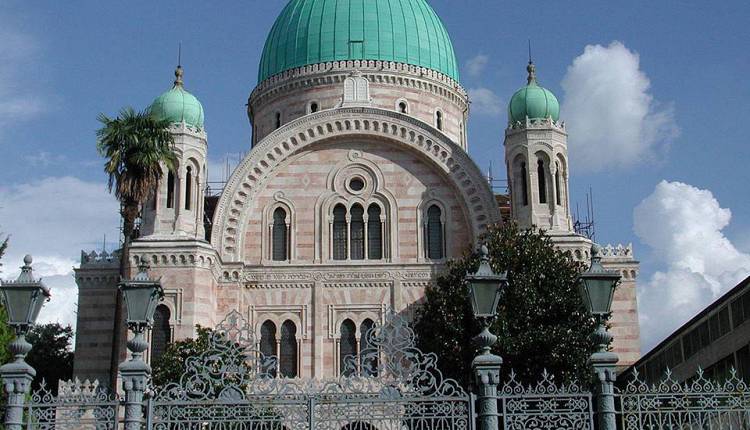
Florence Synagogue, in via Farini
Florence’s synagogue, with its greenish central dome, stands definitively on the city’s skyline. The oxidised copper roof provides its distinctive colouring and marks the place of worship’s presence in the eastern district of the city. The architecture adheres to a Moorish style combined with Arabic and Byzantine elements, which characterize the pink and white stone on the façade of the building. Further south, Siena is also home to a historic synagogue. Built in 1786, its plain façade blends in with the other buildings along the street, masking the ornately decorated interior. Inside there is a small exhibition devoted to documents and photographs of the history of the Jewish community in Siena, from its roots in the 14th century to the present day.
The Museum
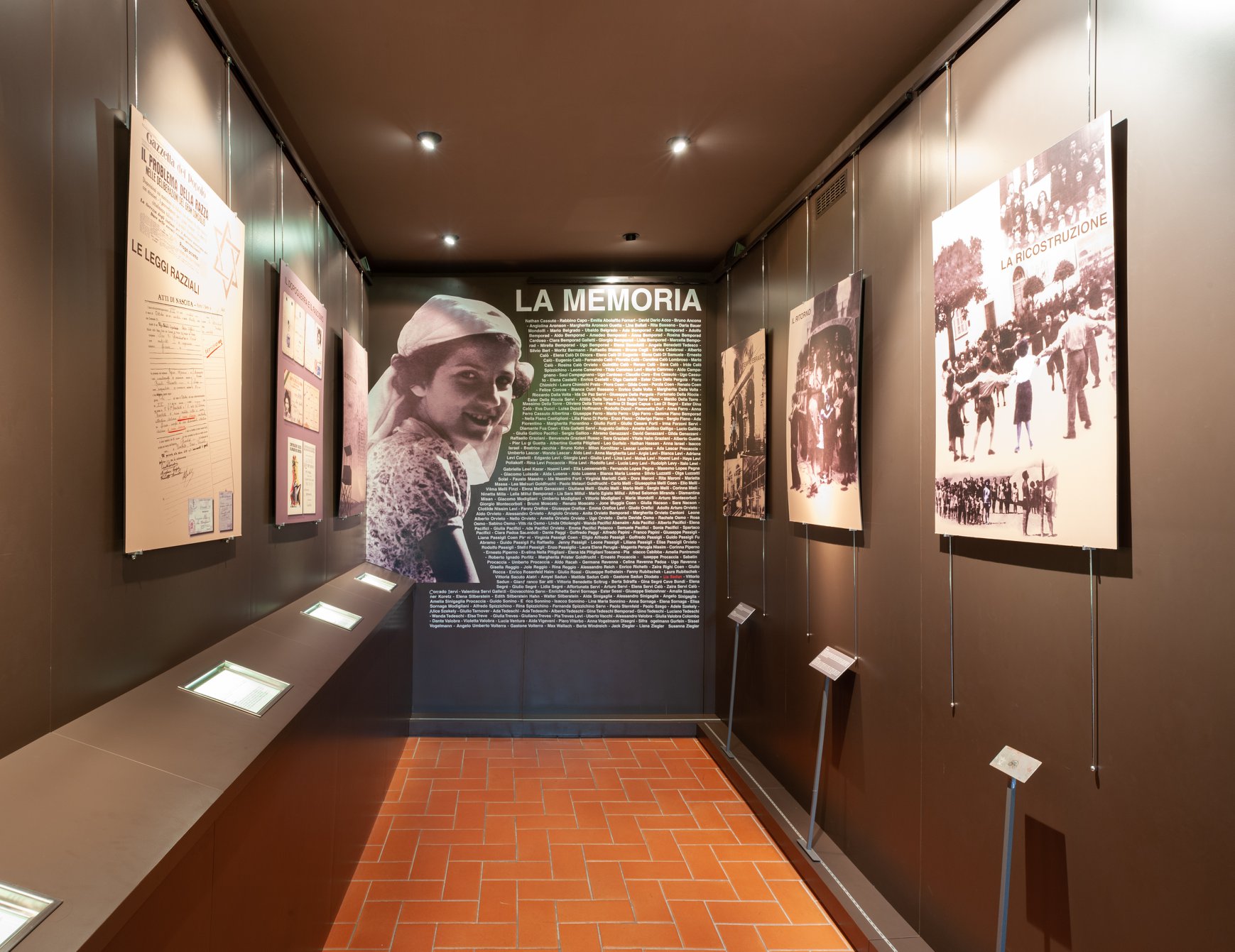
The Jewish Museum, inside the Synagogue, in Florence
The museum is an integral part of maintaining the history of the Jewish people in Florence. Founded in 1981, it covers two floors inside the synagogue itself. Within its collection are silver objects and fabrics that originate from the old Florentine Jewish ghetto as well as a photographic collection and archival material, which display the life of Jewish people in Florence. One room in particular is dedicated to a Holocaust memorial, where records recount the persecution of Jews, displaying documentation on racial laws as well as death camps, followed by testaments to the community’s actions towards post-war recovery. Other rooms feature items used during the performance of religious ceremonies, which were donated by Jewish families to convey and cement their connection to the city.
Progressive Judaism

Shir Hadash Firenze is a group of diverse nationalities, ages and traditions who study and celebrate Judaism. It was founded in 2003 by Italian and American Jews in search of an alternative space to experience Judaism in Italy. Kabbalat Shabbat is held twice a month on Fridays and Havdalah is held on Saturdays (when a rabbi is present). Adult education takes place on Sundays at 10:30am. All are welcome but are asked to contact the group beforehand.
The Cemeteries
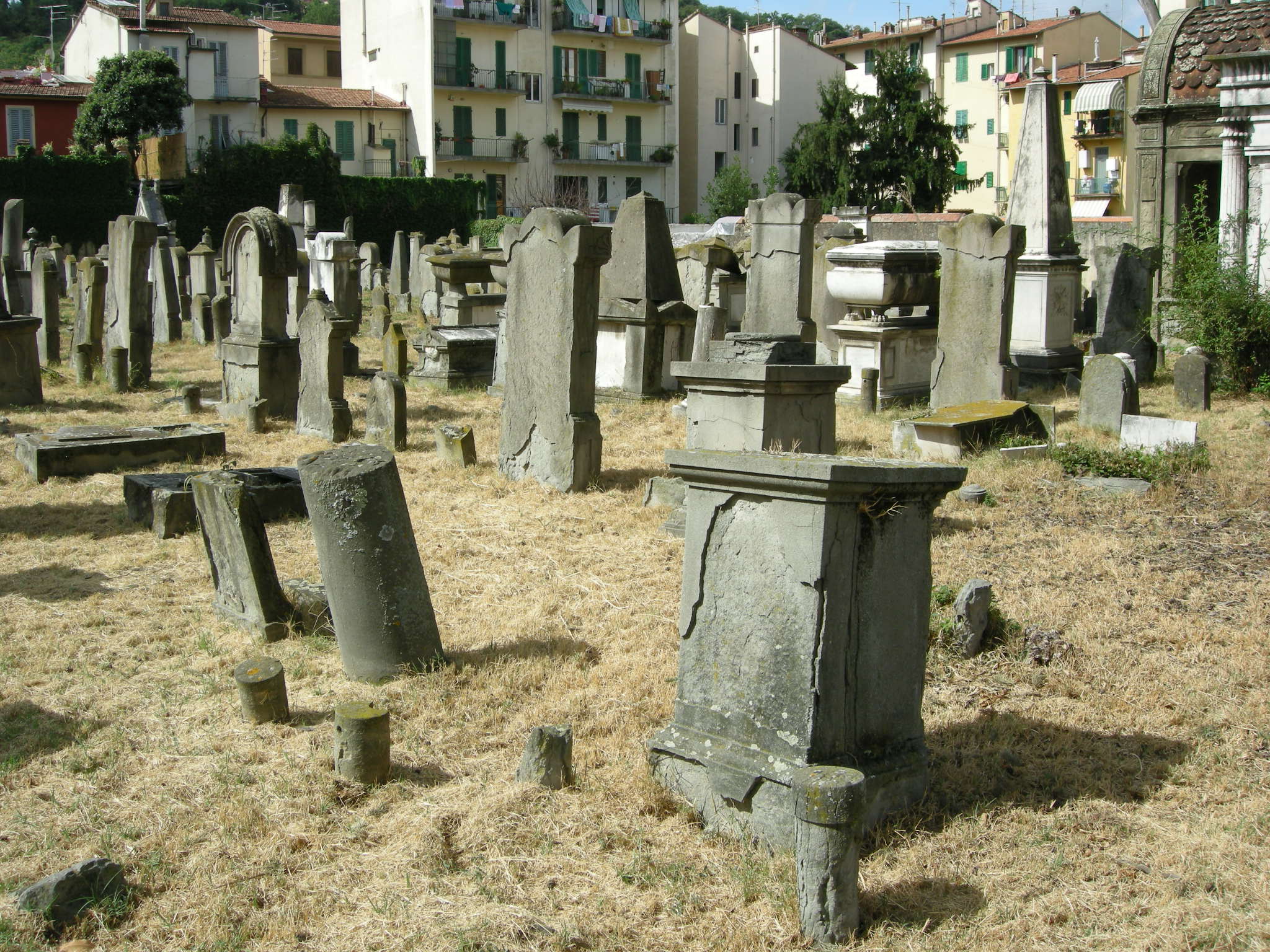
Florence’s Jewish cemetery along viale Ariosto
The monumental Jewish cemetery can be found just outside the city’s walls along viale Ariosto, owing to the fact that Jews were not allowed to be buried inside the city. Within the cemetery there are three monumental chapels, dedicated to the Levi, Servadio and Franchetti families. Many of the graves have unique artistic qualities, with beautiful designs that reflect different styles and influences; one such bares resemblance to an Egyptian tomb, while others are more austere. It is only open once a month, with two guided tours on the morning of the last Sunday, however it is possible to book for private viewings. The Rifredi cemetery can be found in via di Caciolle. Designed by Marco Treves in the 1880s, the mortuary chapel has been restored recently in Renaissance style with a decorated interior. It is only open on the last Sunday of the month for guided tours.
Deportation Monument at the Station
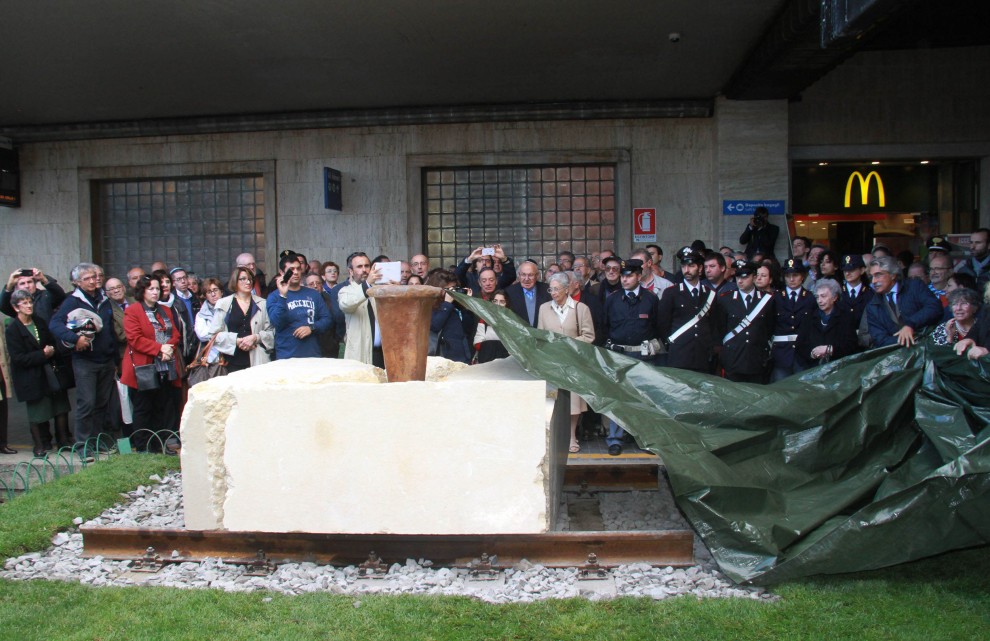
Deportation monument at Florence’s Santa Maria Novella railway station
A monument commemorating the Jews who were deported from Florence can be found at the beginning of platform 16 at Florence’s Santa Maria Novella railway station. Every year on November 9, a memorial service is held next to the monument to remember the Florentine Jews who were deported to Auschwitz by train. Designed by fine arts student Nicola Rossini, the monument was established in 2013 to mark the 70th anniversary of the tragic occurrence.
Signs + Symbols
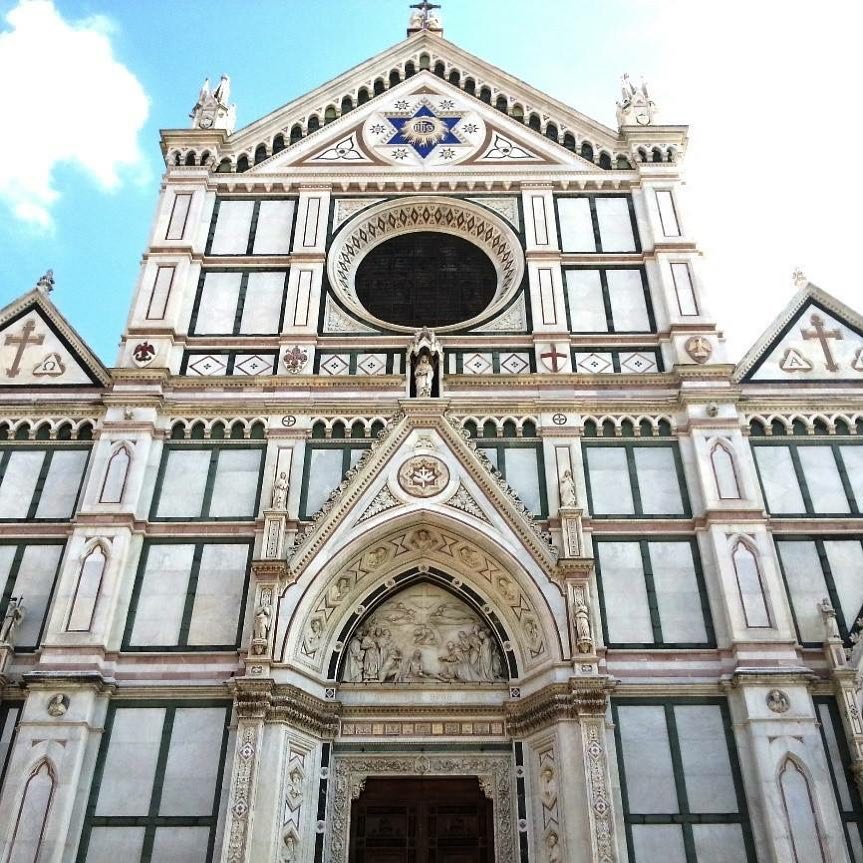
The Star of David on the facade of the Santa Croce Basilica / ph. @santacroceopera via Instagram
Many churches in Florence bear a variety of symbols and signs whose semiotics reveal the relationship of Judaism and Christianity. Often, religious iconography on church buildings can be somewhat perplexing in their ambiguity. Notably, the façade of the Santa Croce basilica displays a large blue Star of David, as it was designed by Jewish architect Niccolo Matas, yet is a Franciscan Catholic church. Although the Star of David does feature in Christianity, this can be seen as a testament to Jewish contribution to the city’s architecture. Because of his religion, Matas is not buried within the church, but underneath the porch.
Places to Eat
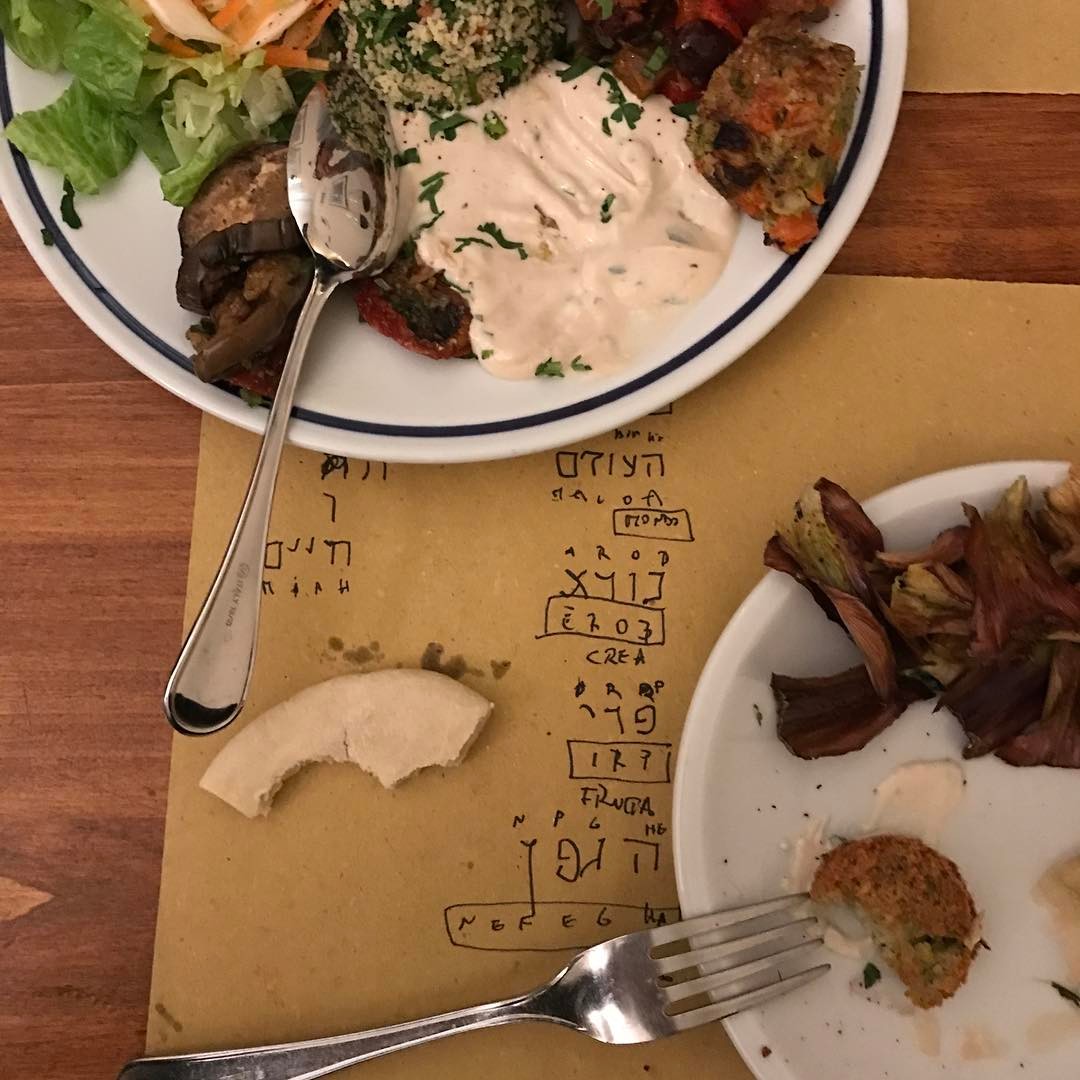
Ruth’s Kosher Restaurant in Florence / ph. @ruggerolupo via Instagram
Several places near the Synagogue offer kosher options on their menus, ranging from ice-cream shops to restaurants and supermarkets. Ruth’s Kosher Restaurant (via Farini 2A) is located near the synagogue and serves delicious vegetarian dishes, falafel, hummus and couscous meats with meat courses available on request. Ruth’s also provides a catering services for weddings and parties. Bernini Palace Hotel (piazza San Firenze 29) offers kosher certified cuisine (a special truffle menu is now available) with the assistance of a mashgiach from the Jewish Community of Florence. Macelleria Falsettini Bruno (piazza Ghiberti) is a family-run butcher’s store in Sant’Ambrogio market that has been preparing kosher meat for over 70 years. Enjoy gelato and frozen yogurt from Gelateria Yoghurteria Ambrosia (via dei Macci, 119R). Citywide Carrefour supermarkets sell kosher foodstuffs.

